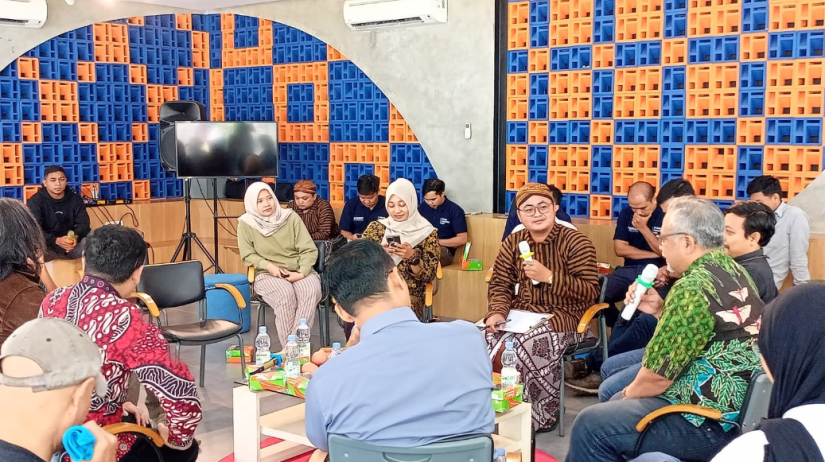
Yogyakarta, June 14th, 2024–The various discourse of touristification in the Gunungkidul regency needs further collaboration from many stakeholders, such as the government, academics, and the citizen coalition, to maintain water sustainability in the Karst ecosystem.
The Public Forum Room is an activity initiated by UGM’s Magistrate students of Management and Public Policy as a way to formulate solutions regarding the sustainability of the Karst ecosystem. This is in line with the UN’s Sustainable Development Goal 6, which talks about Clean Water and Sanitation.
In the focus group discussion titled “Collaborative Steps in Protecting Water Sustainability in The Middle of Touristification at the Gunung Kidul Karst Region,” various figures across the sector convey the importance of protecting water sustainability in Gunungkidul which holds a thousand potentials.
This drives the touristification that involves various stakeholders, and the citizens themselves. Touristification that is done by the government and the investors at the Karst region in Gunungkidul needs to pay attention to environmental impacts analysis, in order to create a much more sustainable tourism.
“In actuality, maintaining a balance between tourism and environmental sustainability, has presented us with many challenges that are becoming more and more dynamic and complex,” said Fendi Saputra at the beginning of the discussion.
Dewi, as the representative of the Director of Ecosystem Management and Restoration KLHK RI, emphasized the importance of the Karst ecosystem. This is why the stakeholders need to pay further attention to the issue of conservation that is in line with the principles.
As for the principles of conservation, there are three important points. Principles of conservation involve the protection, preservation, and sustainable utilization. Through those three principles, people can receive positive benefits for supporting the welfare of the ecosystem through the utilization of forests, plants, or wild animals.
Even so, the Karst ecosystem in Gunungkidul is prone to be dependent on groundwater sources. This needs further attention to its management.
“No matter how we utilize or protect an ecosystem, we have to work together across all the sectors. Whether it is us, the central government, the local government, the local apparatus, and even the academics and non-governmental organizations too. The media is specifically important for socializing government policy,” Dewi added.
Meanwhile, the tourism sector itself is deemed as a fragile sector. According to Bintang Hanggono, from the Koalisi Masyarakat Peduli Pegunungan Sewu, the tourism industry in Indonesia was ever in decline due to travel warnings for some places because of security reasons.
The warning has often been given to Indonesia, so that the flow of tourists will decrease drastically. It is even more apparent when the Covid-19 Pandemic occurred, many players of the tourism industry flew the white flag as a symbol of despair against the ongoing crisis that they are facing.
Thus, through the forum, it is hoped that the stakeholders can know the opportunities and challenges of maintaining water sustainability in the Karst region of Gunungkidul. Other than that, there is a bigger hope that further cooperation will be created to maintain water sustainability, as it is an integral part of developing sustainable tourism.
